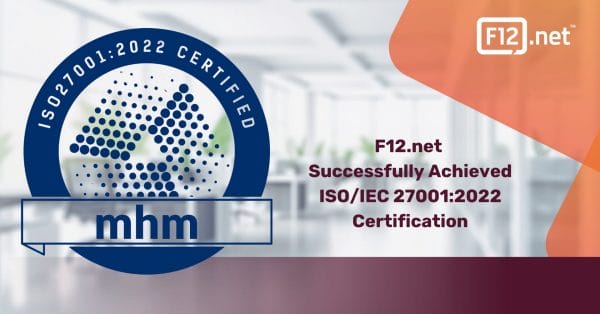Brief: Overview As cyber threats continue to grow in sophistication, traditional security models are no longer enough to protect organisations. For Canadian mid-market businesses in essential sectors such as healthcare, finance, manufacturing, and professional services, adopting a Zero Trust approach is critical for resilience. Zero Trust ensures that no user or device is trusted by default, requiring verification at every stage. This blog outlines the importance of Zero Trust in 2025, detailing the key principles, challenges of traditional security, and the benefits of implementing this robust framework to future-proof businesses.
“Trust is the glue of life. It’s the most essential ingredient in effective communication. It’s the foundational principle that holds all relationships.” – Stephen Covey
The Erosion of Traditional Security Models
In the past, organisations protected their data with a “castle and moat” approach, where internal networks were trusted, and defences were built around them. This model worked in an era where most operations happened on-premises. But today, as businesses adopt hybrid work environments and cloud solutions, relying on traditional perimeters has become a vulnerability.
Take, for instance, the 2020 SolarWinds breach. This attack showed the limitations of perimeter-based security, as attackers exploited trusted connections within the network. They moved laterally, accessing data and systems undetected. The lesson? Traditional security measures are no longer adequate for today’s interconnected landscape.
Zero Trust: An Evolutionary Leap in Cyber Security
Zero Trust is a security model that challenges the very idea of trust within a network. It requires that every user and device, whether inside or outside the organisation, be verified, authorised, and continuously monitored before being granted access.
Key principles of Zero Trust include:
- Identity and Access Management (IAM): Only verified users can access systems. Each employee has access solely to what their role requires, minimising potential damage if credentials are compromised.
- Micro-Segmentation: By dividing networks into smaller zones, organisations can prevent attackers from freely moving within the network.
- Continuous Monitoring with MDR: Every access attempt is monitored, allowing for rapid responses to suspicious behaviour.
The Rise of Cyber Threats in 2025: Why Zero Trust Is Not Optional
Threat Actors Are Growing More Sophisticated
Canada’s mid-market businesses face an unprecedented wave of cyber threats, often from well-funded adversaries, including state-sponsored groups. Recent reports show that Canadian businesses face an average of 10,000 cyber incidents per month1, with small and medium-sized enterprises being prime targets. These actors see mid-sized businesses as potential entry points to larger networks, making essential industries more vulnerable.
Consider a recent Canadian healthcare organisation breach, where attackers used stolen credentials to access patient records. With Zero Trust, such an attack could have been detected sooner, preventing lateral movement across systems.
The Cloud Brings New Vulnerabilities
Cloud adoption has become widespread, with over 80% of Canadian companies now relying on cloud infrastructure2. However, every cloud instance is a potential entry point for cybercriminals if not secured with Zero Trust principles. Each cloud service adds new complexity and, without strict access controls, can expose sensitive data to attackers.
In a Zero Trust model, cloud instances are secured individually, reducing vulnerabilities and protecting data across every touchpoint. For businesses striving for both agility and security, Zero Trust offers a strategic advantage, aligning digital transformation with uncompromising security.
Regulatory Compliance and Zero Trust
In 2025, data privacy regulations in Canada will become more stringent, with new demands introduced by CPPA and enhanced requirements under PIPEDA3. These regulations bring strict penalties for data breaches and inadequate privacy measures. Zero Trust offers a practical framework for compliance, enforcing access control, user verification, and detailed logging to create a compliance-ready environment.
Beyond meeting compliance, a Zero Trust approach signals to customers and stakeholders that data security is a priority. In a recent survey, 73% of Canadian consumers said they are more likely to engage with businesses that demonstrate strong data protection measures4.
Implementing Zero Trust in Canadian Mid-Market Businesses
Transitioning to Zero Trust is not an overnight task. It requires a comprehensive, multi-layered approach that can be tailored to fit an organisation’s unique needs and operational goals. Here’s a pragmatic framework:
- Identify Critical Assets: Establish which data and systems are most essential. These should be prioritised for the highest levels of access control.
- Deploy Identity and Access Management (IAM): Implement multi-factor authentication (MFA) and robust identity systems to prevent unauthorised access.
- Micro-Segment the Network: By creating isolated zones within your network, you limit an attacker’s reach should they manage to breach a system.
- Use Behavioural Analytics: AI-driven behavioural analytics allow real-time monitoring, alerting your security teams to any anomalies.
- Foster a Culture of Cyber Security: Cyber security is a shared responsibility. Training employees on Zero Trust principles and data protection best practices creates a resilient, security-aware organisation.
At F12, we partner with industry-leading firms like WatchGuard and Blackpoint Cyber, enabling Canadian businesses to embed Zero Trust principles across every level of their infrastructure. We provide managed security services that blend accessibility with rigorous defence, making Zero Trust a seamless part of day-to-day operations.
Zero Trust: A Competitive Edge in a Cyber-Resilient Canada
For Canada’s essential businesses, Zero Trust isn’t just a way to mitigate risk—it’s a fundamental strategy for market differentiation. Trustworthy organisations are positioned as preferred partners, fostering confidence in stakeholders, customers, and regulators alike.
Today, with threats accelerating, Zero Trust is the mark of resilience, transparency, and a commitment to data protection. Businesses that prioritise cyber security signal that they’re serious about protecting information, and that resonates with customers. According to a Canadian cyber security survey, nearly three-quarters of respondents feel more secure engaging with companies that publicly commit to rigorous security measures5.
Future-Proofing for 2025 and Beyond
As we head into 2025, cyber threats will continue to evolve, posing challenges that demand forward-thinking strategies. A proactive Zero Trust approach can help you prepare for these challenges. For Canadian businesses committed to resilience and growth, Zero Trust offers a sustainable path to meet both regulatory demands and the expectations of a more security-conscious market.
At F12.net, we support Canada’s essential businesses with Zero Trust frameworks tailored to their needs, equipping them to face future challenges with confidence and agility.
Book a Consultation
Are you ready to embrace Zero Trust and future-proof your business? Book a consultation with F12.net today. We’ll help you design a security strategy that aligns with your business goals, positioning you for sustained resilience in 2025 and beyond. Together, let’s redefine trust and build a secure future for Canada’s essential industries.



